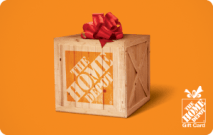The Financial Side of Homeownership: Costs Beyond the Mortgage
Understanding the True Costs of Homeownership
Owning a home can be a fantastic investment, but it comes with more than just your mortgage to worry about. Besides that initial down payment and monthly mortgage bills, there are a whole host of other costs you’ll need to budget for—things like property taxes, insurance, upkeep, and home improvement projects. If you know about these extras ahead of time, you can plan your finances better and make homeownership a lot less stressful.
Property Taxes and Insurance: Two Big Ones
Property taxes and homeowner's insurance are two of the main costs you’ll need to budget for regularly. Property taxes are based on your home’s value and go to your local government. Knowing how these taxes are calculated and what you’ll owe can help prevent any unwelcome surprises when tax season rolls around.
Insurance is equally important—it protects your home and personal belongings in case of damage or loss. Take the time to compare policies and shop around for the best rates. And don’t forget to review your insurance every now and then, especially if you've made improvements or renovations. This way, you’re sure your home is properly covered without overpaying.
Home Maintenance and Unexpected Repairs
Owning a home means you’re responsible for its upkeep, which can add up faster than you think. Routine tasks—like mowing the lawn, servicing your HVAC system, or cleaning out gutters—are part of keeping your home in good shape. Setting aside a bit of money regularly for these tasks can save you from much bigger bills down the road.
And let’s face it—things break. Whether it’s a leaky roof or a surprise plumbing issue, unexpected repairs can quickly derail your budget. That's why it’s smart to have a little emergency fund just for these kinds of surprises. It might feel like over-preparing, but when the time comes, you’ll be glad you did.
Making Your Space Your Own: Home Improvement Projects
Once you’ve moved in, there’s a good chance you’ll want to make the space your own. Maybe it’s a fresh coat of paint, a new backyard garden, or even a full kitchen remodel. While these projects can add to your home’s value and make it feel more like yours, they can also be pricey if you don’t plan carefully.
Researching and comparing prices, shopping sales, and even using a prepaid Visa gift card for supplies can help you save money. With a bit of planning, you can get those dream upgrades without blowing your budget.
Gift Cards: A Savvy Way to Save on Home Projects
Speaking of prepaid cards—gift cards can be an unexpected ally in your home improvement journey. Discounted gift cards, eGift cards, or prepaid Visa cards can help you score exclusive deals at hardware or home improvement stores. The convenience of using virtual or physical cards both online and in-store makes it easy to manage your purchases. It’s a simple but effective way to cut costs.
Planning for the Future: Long-Term Comfort and Value
While day-to-day expenses are important, don’t forget to think about the long-term value of your home. Upgrades like energy-efficient windows, better insulation, or smart home technology might seem like a big investment at first, but they can lead to serious savings on utility bills over time.
Also, consider future renovations—whether it’s replacing an aging roof or sprucing up the landscaping. These projects not only make your home more enjoyable to live in but also help maintain and even increase its market value. Think of it as investing in both your comfort and your financial future.
In Conclusion
Owning a home comes with responsibilities beyond just making your mortgage payments. By understanding the costs of property taxes, insurance, maintenance, and improvements, you’ll be better prepared to handle the financial realities of homeownership. And with a little planning—like taking advantage of gift card deals for home projects—you can ease the financial load and keep your home in tip-top shape. Ultimately, the key to a smooth homeownership experience is knowing what to expect and planning accordingly.
